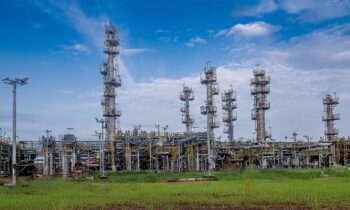
…700MW Zungeru Hydro project to be completed end of year
Olusola Bello
The subsidy that government continued to pay on electricity has been responsible for Nigerians not feeling the impact of the N1.7 trillion spent in the power sector over the years, Ahmad Zakari, Special Adviser to President Muhammadu Buhari on Infrastructure has said.
The presidential aide also disclosed that the 700 megawatt Zungeru Hydro Power project would be completed by the end of this year, emhpasising that government is very focused on this.
He said since 2013 the country has been on the regime which allows the Discos to operate and whatever revenue that is received from them, the government then top it up and push to the generating companies.
According to him, transition from subsidizing consumption to infrastructure is what this administration is executing.
Ahmad Zakari, who spoke on Arise Television Tuesday, said without a firmed growing power sector we would continue to miss economic opportunities. He however admonished Nigerians not to allow the frustration caused by lack of electricity to lead to policy summersault that would potentially drag the industry back.
He identified three major classes of challenges which are regulatory, fiscal and infrastructural, affecting the sector.
.He expressed that the current administration has gone far to correct the inefficiency by introducing the service-based tariff despite the regulatory gap which created an investment quagmire wherein any investor who put in money wasn’t able to recover it.
This administration, he stated has worked out how it will push more infrastructure into the network, starting from the National Mass Metering Programme (NMMP), through the emergency intervention from the central bank, commercial banks and donor partners.
This was in addition to the incremental support from Siemens and other programmes, amounting to about $3 billion actively being spent and would be spent over the next 24 months.
He disclosed that in 2015, there were 28 total or partial collapses, while as of last year there were four, noting that in 2021, Nigeria has had one partial and one total collapse.
“There’s a plan to invest in SCADA, which is the system that digitally manages the grid. It allows you to monitor all of the figures and voltage and whenever there are challenges it can isolate the problematic segment”.
On the controversial tariff adjustment in the country, he said that the statute allows tariff to be tampered with every six months.
He regretted that the development has not been fully communicated with the public even though any time it is done, it is viewed as tariff increase by the masses.
Federal government has continued to encourage local meter manufacturers, who have already delivered in excess of 500,000 to 600,000 meters in phase zero of the scheme, out of which 400,000 have been installed, said
According to him, the national mass metering programme has delivered more meters to Nigerians in four months than what was done in 18 months under the entire Meter Asset Provider (MAP) programme and expressed confidence that the six million metering target will be met.
As regards the service-based tariff regime, new grounds were being broken as the Discos collected N65 billion in December 2020, leading to a 15 per cent increase in delivery of power even before the commencement of capital expenditure.
“So, we are seeing increased liquidity in the system that is likely to continue. The Siemens programme is part of the suite of investments that make up the $3-$5 billion that we are targeting over the next 24 months,” he said.
He noted that despite the improvements, there’s still a lot of gap to be filled and massive investments to be made in the entire value chain of the power sector.





